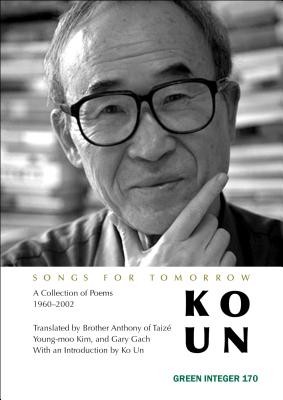
- Išparduota

- Autorius: Ko Un
- Leidėjas: GREEN INTEGER
- ISBN-10: 1933382708
- ISBN-13: 9781933382708
- Formatas: 10.5 x 15.5 cm, minkšti viršeliai
- Kalba: Anglų
Atsiliepimai
Aprašymas
In this long awaited full survey of the poetic writing of Korea's leading literary spokesperson, the translators have gathered poems from 42 years, representing numerous of the author's 135 books. Born in 1933 in southwestern Korea, Ko Un grew up in a Japanese-controlled land that was soon to experience the horrors of the Korean War. In 1952 he became a Buddhist monk, and began writing in the late 1950s. Since that time, Ko has been recognized as one of the most notable of living Korean writers and has regularly been nominated and short-listed for the Nobel Prize for Literature.
- Kaina: 48,99 €
Perskaityta knyga:
Nenauja knyga, kurią parduoda privatus žmogus.
Knygą išsiųs knygos pardavėjas kasparas.
Pardavėjo reitingas: 100%
- Autorius: Ko Un
- Leidėjas: GREEN INTEGER
- ISBN-10: 1933382708
- ISBN-13: 9781933382708
- Formatas: 10.5 x 15.5 cm, minkšti viršeliai
- Kalba: Anglų Anglų
In this long awaited full survey of the poetic writing of Korea's leading literary spokesperson, the translators have gathered poems from 42 years, representing numerous of the author's 135 books. Born in 1933 in southwestern Korea, Ko Un grew up in a Japanese-controlled land that was soon to experience the horrors of the Korean War. In 1952 he became a Buddhist monk, and began writing in the late 1950s. Since that time, Ko has been recognized as one of the most notable of living Korean writers and has regularly been nominated and short-listed for the Nobel Prize for Literature.

Atsiliepimai